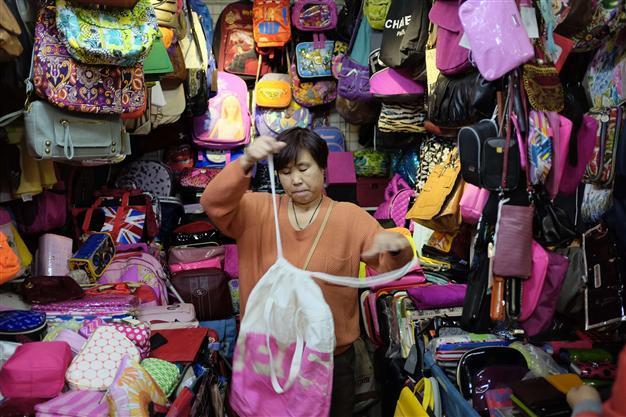China needs 7.2 percent GDP growth to support job market
BEIJING - Reuters

REUTERS Photo
China needs to sustain economic growth of 7.2 percent to ensure a stable job market, Premier Li Keqiang said as he warned the government against further expanding already loose monetary policies.
In one of the few occasions when a top official has specified the minimum level of growth needed for employment, Li said calculations show China’s economy must grow 7.2 percent annually to create 10 million jobs a year.
That would cap the urban unemployment rate at around 4 percent, he said.
“We want to stabilize economic growth because we need to guarantee employment essentially,” Li was quoted by the Workers’ Daily as saying on late Monday. His remarks were made at a union meeting two weeks ago but were only published in full this week, just days before a pivotal Communist Party plenum to set policy opens.
Yet even as authorities keep an eye on growth, Li sounded a warning on easy credit supply, which he said had topped 100 trillion yuan ($16.4 trillion) in the world’s second-biggest economy.
“Our outstanding M2 money supply has at the end of March exceeded 100 trillion yuan,
and that is already twice the size of our gross domestic product (GDP),” Li was quoting as saying.
“In other words, there is already a lot of money in the ‘pool’; to print more money may lead to inflation.”
His comments echoed the government’s hawkish stance on inflation, analysts said, and were separately affirmed on Tuesday by the central bank, which promised to keep policy prudent with appropriate fine-tuning as well as to “resolutely repress” property speculation.
Still, Li’s remarks underscore the fine line China must walk to create economic growth and jobs for social stability, while guarding against excesses that may hurt itself in the long run.
China’s authorities have criticized the country’s $8.5-trillion economy - powered by heavy reliance on exports and investment - as unstable and on an unsustainable growth path.
Toleration for slower growthIts new leaders have signaled they are willing to tolerate slower expansion in exchange for cleaner growth led by consumption.
The crucial meeting of top leaders from Nov. 9 to Nov 12 will shed light on just how
committed Beijing is to enforcing reforms, many of which analysts say would test politicians’ will to push through unpopular changes. Buffeted by sluggish export sales and in part on the government’s deliberate attempt to slow activity, China’s economy is sagging towards its slackest pace of expansion in 23 years this year, at 7.5 percent.
In its third-quarter monetary policy report, the People’s Bank of China (PBOC) said China’s economy faces a challenging future and that inflation, although stable right now, may rise in the fourth quarter.
“The foundation for stable consumer prices is not solid,” the central bank said. “Annual consumer inflation may rise in the fourth quarter.”
China’s annual consumer inflation rate rose to a seven-month high of 3.1 percent in September as poor weather drove up food prices, limiting the scope for the central bank to maneuver to support the economy even as exports showed a surprise decline.
Li reiterated that a 7.5 percent growth target for 2013 remains intact, but noted that weak exports were a risk.
Exports can directly create about 30 million jobs and add another 70 million jobs in other related industries, Li said.
